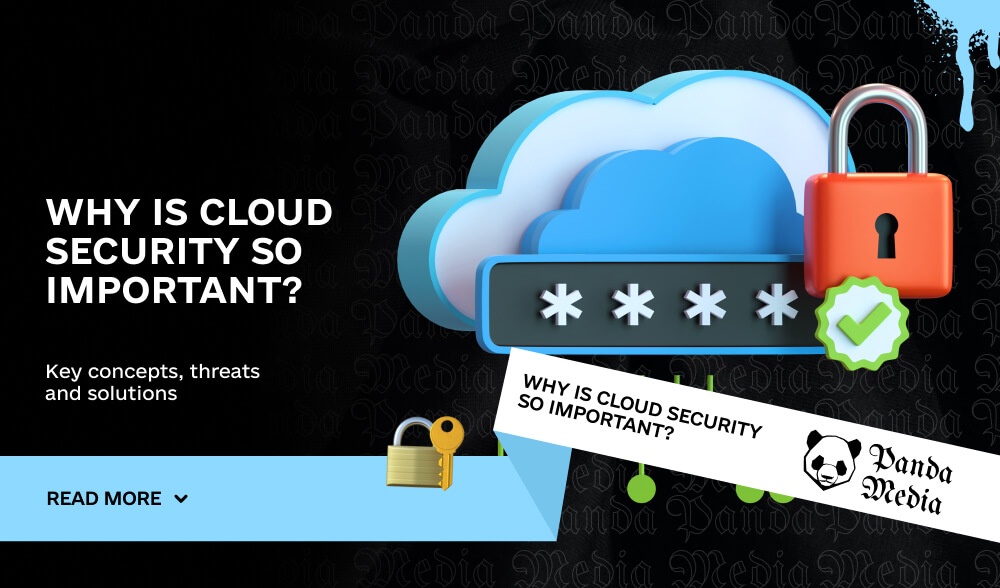Don't miss interesting news

Why is cloud security so important? We analyze the key concepts, threats, and solutions

Enterprises around the world are undergoing digital transformation processes, where they are beginning to use, migrate, or adopt a huge variety of cloud technologies.
Cloud security combines policies, methods, approaches, and technologies to ensure cybersecurity and protect applications and data in cloud environments. The key to protecting against external and internal threats can be detailed access control policies, compliance with industry and corporate security requirements, and the use of automated backup and disaster recovery tools.
Cloud computing is attractive from a flexibility and cost perspective, but cloud administrators today must have a deep understanding of enterprise processes to be able to customize security policies and standards, combined with mandatory roles and responsibilities.
Unfortunately, traditional networking technologies and security mechanisms cannot be easily or seamlessly moved to the cloud.
Cloud security is important because using the cloud increases the potential attack surface – it opens up new avenues for hackers to breach your network. By using cloud computing services without proper cloud security measures, you provide attackers with opportunities to steal data, destroy confidential files, and gain unauthorized remote access to your system.
Cloud security is also a must if your organization stores personal data in the cloud. Most data protection regimes require businesses to take adequate measures to secure private data wherever it is stored. The overall responsibility for data loss lies with you, not your cloud service provider.
Cloud security is a multi-level defense system that uses a number of technologies. Among them:
Cloud services are becoming more and more popular and sophisticated as their benefits become more and more clear. First of all, this is due to increased work efficiency and savings. At the same time, security methods are being improved. SoftwareOne specialists will help you with the implementation of cloud technologies and the security of their use.

Cloud security is the responsibility of both cloud service providers and their customers. The degree of responsibility depends on the type of services offered.
In this model, cloud service providers offer computing, networking, and storage resources on demand. Providers are responsible for securing the underlying computing services. In addition to the operating system, customers also need to protect applications, data, runtime environments, and middleware.
Many vendors also offer a comprehensive environment for development and deployment in the cloud. In addition to the core computing services, vendors are also responsible for securing the runtime, middleware, and operating system. Customers need to protect their applications, data, access, devices, and user networks.
Organizations can also access software on a per-minute basis, such as Microsoft Office 365 or Google Drive. In this model, customers still need to protect data, users, and devices.
There are several key aspects of cloud security that both providers and customers are responsible for.
Passwords are the first line of defense for your cloud account. Use a password manager like NordPass to create and automatically enter complex passwords.
Multi-factor authentication (MFA) protects accounts with an additional control procedure. In addition to a password, attackers will need a code or device that only you can access to log in.
Use file encryption software or store data only in encrypted storage. Even in the event of a data breach, attackers will not be able to access your encrypted information.
VPN(for example, NordVPN) protects data transferred to and from the cloud. It is especially important to use a VPN to access the cloud on public Wi-Fi networks.
Cloud services are becoming more and more popular and sophisticated as their benefits become more and more clear. First of all, this is due to increased work efficiency and savings. At the same time, security methods are being improved. Our experts are already actively using and can help you implement cloud technologies. Protect your data from fraudsters.